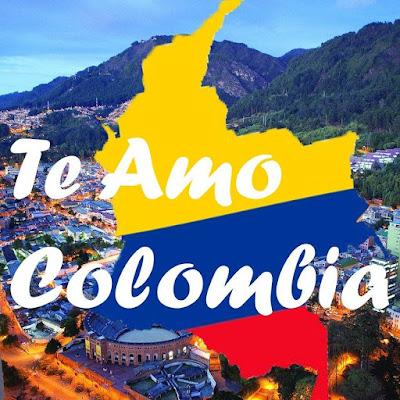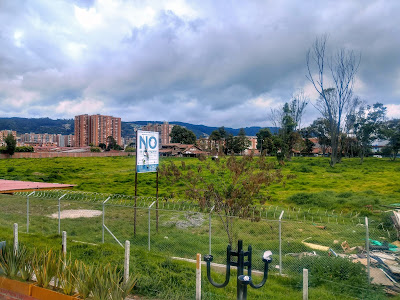Back in my largely innocent childhood days one of the most depressing times was when Christmas came to an end. In fact, the painful comedown started to kick in shortly after the 25th of December.
 |
| Decking out the place for Christmas ... in October. |
Quick-fire Christmas
So, while the afterglow lasted for a period, the sad realisation that I'd have to wait another year for Mr Claus' arrival didn't take long to set in. Within a couple of days, the spectre of a return to school and 'normal' times began to play on my mind.Now, I do recall the official — that is to say, putting up the decorations — Corrigan run-in to Christmas being fairly short.
Amongst my village friends, our household would invariably be one of the last to be decked out. It wasn't unusual for some frantic decorating to still be happening on the 24th. 'Time enough for it', was the thinking, I guess. I'm pretty sure if it was left to my father, decorations wouldn't go up at all.
At the height of the Celtic Tiger years as Ireland embraced US-style flashiness, or superficiality you might say, and as I moved on from Santa, it pretty much became unacceptable for any respected family not to have their house 'Christmas ready' by mid-December. (At about the same time, again mimicking our Yankee cousins, Halloween decorations appeared to have become mandatory in many households.)
That being so, for what I assume is the majority of Irish people, rolling out the Christmas decorations before December is still a no-no. Five weeks of Christmas is enough, almost one-tenth of the year as it is. The fact that most radio stations hold off on playing festive tunes until at least 01 December is a sign of that.
Radio stations are complicit. The end-of-year hits are being banged out as soon as September ends.
In my current house share, the landlady is very much in this bring-on-Christmas brigade. For the last week, she's been, slowly but surely, kitting out the place. By the looks of things, not one inch of the house, the ground floor anyway, will be free from a festive covering.
I do, however, slightly worry for the landlady herself. As somebody who appears to suffer from depression, I can't help but think of her state of mind when she has to take down all these decorations, in mid-January at the earliest as it most likely will be.
Of course, we all have downers after highs, it's natural. 'What goes up' and all that.
Yet, the lady of my current 'manor', considering her condition, seems to be putting herself through an unnecessary emotional high. I just hope she can manage the inevitable comedown when it's all over, when everything from the Santa dolls to the glittery balls has to be packed away.
You might say I'm being a bit of a curmudgeon, a Grinch even. I beg to differ. I like a party as much as the next person.
It's just that experience has taught me to try to not get too lost in the moment when surfing the high waves. That way, you'll generally be in a better position to manage the crash when it envelops you, you'll be able to avoid being drowned by emotions.
That's the theory, anyway. As ever, executing it in practice is usually much more difficult. At least we've covid-19 to keep us all in check this year.
_______________________________________________________________
Listen to Wrong Way's Colombia Cast podcast here.
Facebook: Wrong Way Corrigan — The Blog & IQuiz "The Bogotá Pub Quiz".
At the height of the Celtic Tiger years as Ireland embraced US-style flashiness, or superficiality you might say, and as I moved on from Santa, it pretty much became unacceptable for any respected family not to have their house 'Christmas ready' by mid-December. (At about the same time, again mimicking our Yankee cousins, Halloween decorations appeared to have become mandatory in many households.)
That being so, for what I assume is the majority of Irish people, rolling out the Christmas decorations before December is still a no-no. Five weeks of Christmas is enough, almost one-tenth of the year as it is. The fact that most radio stations hold off on playing festive tunes until at least 01 December is a sign of that.
'As a sufferer of depression, I can't help but think of her state of mind when she has to take down all these Christmas decorations, in mid-January at the earliest as it most likely will be.'For a fair number of Colombian families, in contrast, the Yuletide yearning tends to show itself in earnest in October. While some might follow the 'let's at least get Halloween out of the way first' mantra — do note, the 'night of the dead' is a lively affair here — others have their sights set on Christmas.
Radio stations are complicit. The end-of-year hits are being banged out as soon as September ends.
In my current house share, the landlady is very much in this bring-on-Christmas brigade. For the last week, she's been, slowly but surely, kitting out the place. By the looks of things, not one inch of the house, the ground floor anyway, will be free from a festive covering.
Emotional moment
It doesn't bother me, as long as I don't have to do any of the decorating. I'm kind of indifferent to Christmas at this stage.I do, however, slightly worry for the landlady herself. As somebody who appears to suffer from depression, I can't help but think of her state of mind when she has to take down all these decorations, in mid-January at the earliest as it most likely will be.
Of course, we all have downers after highs, it's natural. 'What goes up' and all that.
Yet, the lady of my current 'manor', considering her condition, seems to be putting herself through an unnecessary emotional high. I just hope she can manage the inevitable comedown when it's all over, when everything from the Santa dolls to the glittery balls has to be packed away.
You might say I'm being a bit of a curmudgeon, a Grinch even. I beg to differ. I like a party as much as the next person.
It's just that experience has taught me to try to not get too lost in the moment when surfing the high waves. That way, you'll generally be in a better position to manage the crash when it envelops you, you'll be able to avoid being drowned by emotions.
That's the theory, anyway. As ever, executing it in practice is usually much more difficult. At least we've covid-19 to keep us all in check this year.
_______________________________________________________________
Listen to Wrong Way's Colombia Cast podcast here.
Facebook: Wrong Way Corrigan — The Blog & IQuiz "The Bogotá Pub Quiz".





